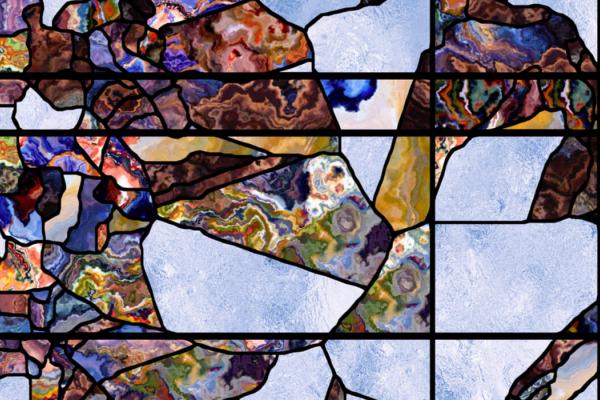We are living in one of the most deeply divided moments in recent U.S. history.
Media outlets remain abuzz with news of President Donald Trump’s firing of FBI Director James Comey and the mounting concern that his campaign colluded with Russia to win the election. In the background is a GOP-held Congress that has abdicated responsibility to hold the executive branch accountable to the law — in favor, it seems, of continued partisan lock on all three branches of government.
Earlier this month, the House passed a profoundly partisan health care bill that effectively redistributes care from the poor and working class to the rich. In the words of Rep. Joseph Kennedy (D-Mass.): “It codifies a worldview by this administration that is dead set on dividing America along the lines of the God of your prayers, who you love, where you come from, or your fate and fortune.”
Within his first 100 days, President Trump issued an executive order that jeopardizes all undocumented immigrants, regardless of criminal history or status. Likewise, within days of being sworn in, Attorney General Jeff Sessions issued a statement that his Justice Department would stop monitoring troubled police departments. At the same time, he issued directives to “pull back” on civil rights suits against police officers, and announced that the Trump administration would reverse the Obama initiative to phase out federal use of for-profit prisons.
In this partisan context, white evangelicals continue to demonstrate either support for or passive indifference to policies passed by the administration that 81 percent helped to elect, while evangelicals of color are voicing rising dissent.
Politics is the conversation we have and the decisions we make together concerning how the polis (the people) will live together. Those conversations shape the policies, structures, and systems that govern our society and have been most fundamentally shaped by the political construct of race.
But what shapes our political conversations? What shapes how we enter those conversations and make those decisions? What shapes the assumptions we hold before we even speak? And what determines how we vote?
I am becoming more convinced than ever, our politics is fundamentally shaped by the stories we tell ourselves about ourselves, about each other, about God, and about how we got here.
In April 2015, civil unrest exploded in Baltimore in response to the death of Freddie Gray. Within days, a multi-site church in the heart of Baltimore invited me to conduct a training on faith-rooted organizing for a network of churches across the city. Pastors sat around tables, deeply engaged as I walked them through Nehemiah’s call to confess our complicity with the spiritual lies that oppress the vulnerable. Soon we were off-script. These mostly Southern Baptist clergy sat with jaws swinging agape as I shared the genesis and development of the political construct of race, and how it has impacted our nation.
I talked about the first judicial cases in the late 1600s that transformed indentured servitude into a race-based system of enslavement.
I talked about the shift from British common law to the Roman law of partus that allowed white slave masters to continue to rape their enslaved women, producing biracial children that they could continue to enslave — in perpetuity.
I talked about the Three-Fifths Compromise, which declared enslaved blacks to be less than human, according to the law.
I talked about the first U.S. Census, which only had one race listed — white.
I talked about the Naturalization Act of 1790, which declared that only white men could become naturalized citizens. Theologically, this was a declaration of who was fully human — white men, the only ones called by God to exercise dominion.
That day in Baltimore, one pastor sat with an incredulous look on his face. Then he raised his hand and said: “I didn’t know. I didn’t know.”
He continued, “How is it possible that I have never heard any of this? I went through Christian school, Christian college, seminary … and I never learned any of this.”
The stories we tell ourselves about ourselves, about the other, and about God shape our politics. They shape the conversations we have about how the polis should live together.
One of the great revelations of Divided by Faith, a 2000 sociological study of white evangelicals from Michael Emerson and Christian Smith, was that the structure of white evangelicalism creates insulated lives. In evangelical churches, people can spend nearly every day of the week in their church, where white people usually hold the vast majority. As a result, they rarely have opportunity to hear stories of this world that challenge or stretch their own worldview.
This insulated worldview is strongest in the white evangelical church, according to Emerson and Smith, but it is not limited to white evangelicals.
According to a 2014 PRRI study: “Among white Americans, 91% of people comprising their social networks are also white, while five percent are identified as some other race.”
The same study found that 75 percent of white people in the U.S. have social networks consisting entirely of other white people.
In this context, the disparate vote between white Americans and Americans of color in 2016 makes sense. White Christians and Christians of color are rehearsing disparate stories of who we are as a nation, how we got here, and how God relates to us. In other words, the 2016 election revealed a yawning narrative gap in our nation.
We need an intervention. We need to shrink the narrative gap between us.
Emerson and Smith gave one ray of hope in their 2000 book. The sole way they observed a widening in white Christians’ worldviews was through experiences of and immersion in stories and communities of color — particularly communities of black folk.
One, two, or five black friends is not enough. To change, white Christians must be surrounded on all sides by worldviews unlike their own.
Imagine for a moment: What kind of impact could a major investment in the spiritual practice of pilgrimage make in the future of the church, our nation, and our world?
How might we change the way we think of ourselves, the other, and God if we faced and journeyed through the stories of oppression and peacemaking woven throughout our nation’s history?
How might it change our conversations about how the polis should live together, if we came to shared understanding of our nation’s story and how decisions on public policy blessed the image of God in some while cursing it in others?
In an age when both explicit and implicit biases are becoming legitimate justifications to curse the image of God, it is time for the church in the U.S. to face itself. It is time to repair the broken fabric of our nation. It is time to interrogate the stories we tell our selves about ourselves by immersing ourselves in the stories of the other.
Only then can we find peace.
Got something to say about what you're reading? We value your feedback!







